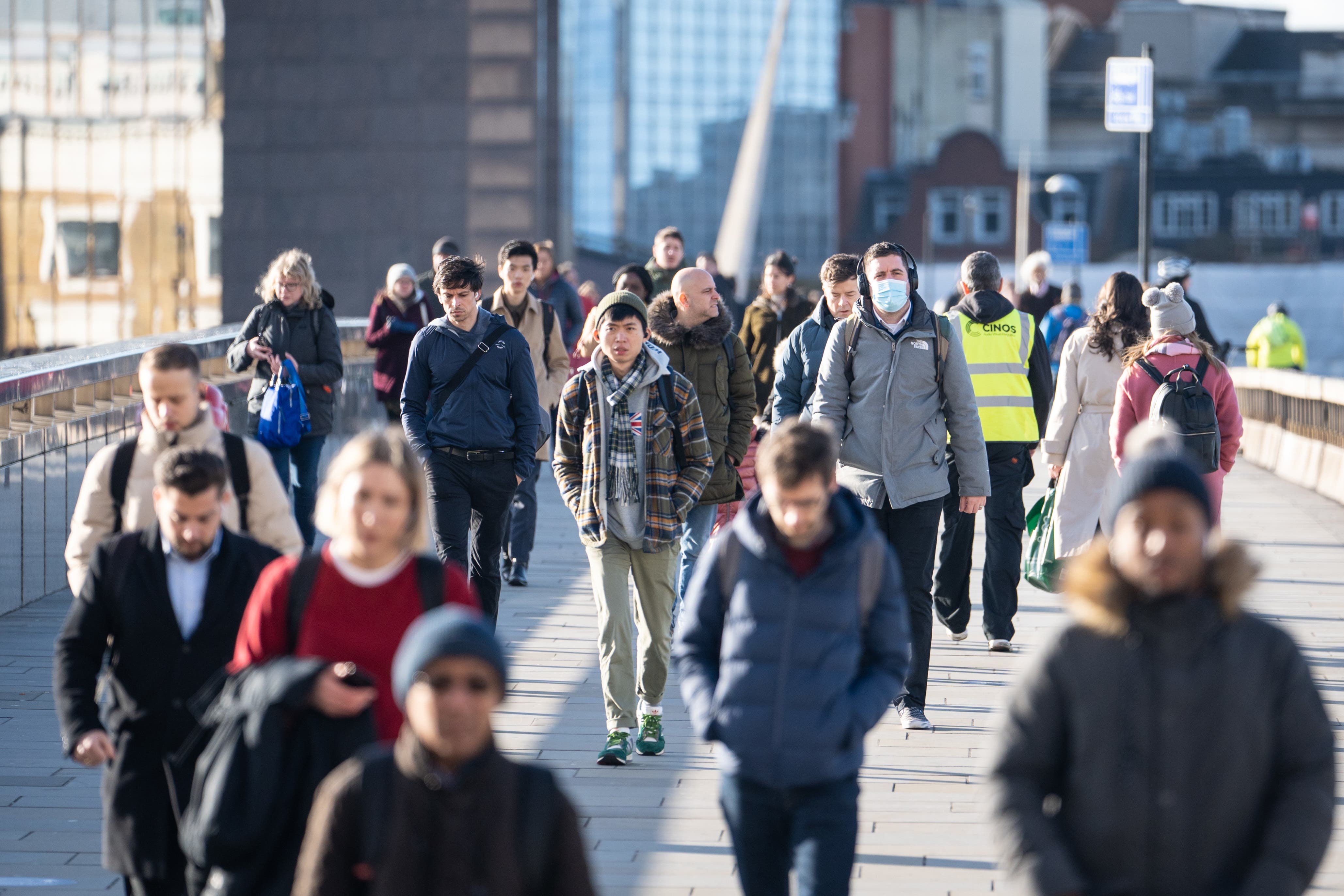Economy ‘loses momentum again’ as private sector growth slows
The S&P Global/CIPS flash UK purchasing managers’ index fell to 52.8 in June from 54 in May.

Your support helps us to tell the story
From reproductive rights to climate change to Big Tech, The Independent is on the ground when the story is developing. Whether it's investigating the financials of Elon Musk's pro-Trump PAC or producing our latest documentary, 'The A Word', which shines a light on the American women fighting for reproductive rights, we know how important it is to parse out the facts from the messaging.
At such a critical moment in US history, we need reporters on the ground. Your donation allows us to keep sending journalists to speak to both sides of the story.
The Independent is trusted by Americans across the entire political spectrum. And unlike many other quality news outlets, we choose not to lock Americans out of our reporting and analysis with paywalls. We believe quality journalism should be available to everyone, paid for by those who can afford it.
Your support makes all the difference.The UK economy “has lost momentum again” as growth in the private sector dropped to its slowest for three months, according to new data.
The closely-followed S&P Global/CIPS flash UK purchasing managers’ index declined to 52.8 in June from 54 in May.
It represented a sharper slowdown than expected, with experts having forecast a figure of 53.7 for the month.
Any reading above 50 is considered to show the sector is growing.
Chris Williamson, chief business economist at S&P Global Market Intelligence, said: “June’s flash PMI survey indicates that the UK economy has lost momentum again after a brief growth spurt in the spring and looks set to weaken further in the months ahead.
“Most notably, consumer spending on services, which was a core growth driver in the spring, is now showing signs of faltering as the reality of higher interest rates, the increased cost of living and gloom about the outlook sets in and overrides the brief boost to spending enjoyed from the pandemic tailwind.”
The latest report showed further growth in the services industry, but the reading of 53.7 was its slowest rate of expansion since March as higher interest rates impact Britons’ spending power.
Firms in the services sector also “recorded a further steep rise in their average prices charged” as they highlighted the impact of higher wages.
Meanwhile, the manufacturing sector saw activity contract at the same level as it reported in May, with a reading of 47.7.
Companies said production cutbacks were linked to a reduction in new orders amid “subdued underlying demand and a headwind from customer destocking”.
However, the report also revealed the rate of staff hiring across UK industry was the fastest seen since September last year as the job market remained resilient.
John Glen, chief economist at the Chartered Institute of Procurement & Supply (CIPS), said: “Recent interest rate rises will also add more stress on business investment.
“In the manufacturing sector, new orders fell again for another month, marking a year of shrinking workflows.”